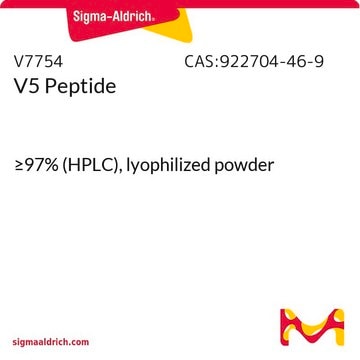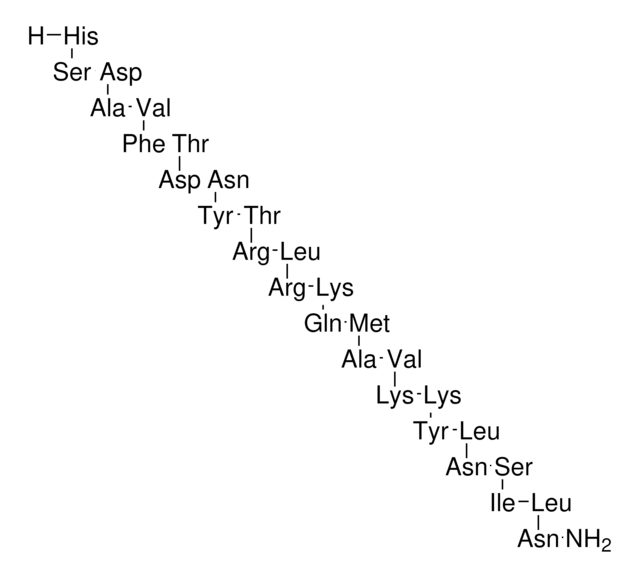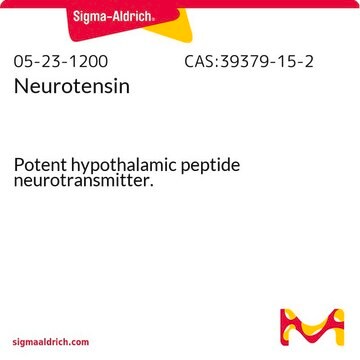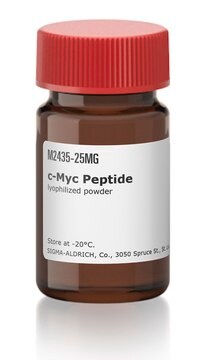Recommended Products
assay
≥90% (HPLC)
form
aqueous solution
packaging
pkg of 80 nmol
concentration
400 μM
UniProt accession no.
shipped in
dry ice
storage temp.
−70°C
Gene Information
human ... CARM1(10498)
General description
Protein arginine methyltransferase 4 (PRMT4), which is also known as coactivator associated arginine methyltransferase 1 (CARM1), is part of the protein arginine methyltransferase (PRMT) family. The gene encoding this protein is localized on human chromosome 19p13.2.
Application
Study enzyme kinetics, and screen small molecular inhibitors of PRMT4 histone methyltransferase for drug discovery and HTS applications.
Biochem/physiol Actions
Protein arginine methyltransferase 4 (PRMT4) methylates arginine residues of histones and other proteins and thus has a role in modulation of gene expression. The protein also methylates histone acetyl transferases. It has been shown to associate with Mi2a, a chromatin remodeler. It also associates with nuclear factor-κB (NF-κB), estrogen receptor and tumor suppressor p53 and is recruited to specific target genes. PRMT4 has a role in pre-mRNA splicing and DNA damage response. The protein has been shown to be upregulated in liver, prostate and breast cancers.
Physical form
Supplied in a TRIS-buffered solution.
Other Notes
200 μL at 400 μM, or 80 nmol. Sold as 80 nmol
Storage Class
10 - Combustible liquids
wgk_germany
WGK 2
flash_point_f
Not applicable
flash_point_c
Not applicable
Certificates of Analysis (COA)
Search for Certificates of Analysis (COA) by entering the products Lot/Batch Number. Lot and Batch Numbers can be found on a product’s label following the words ‘Lot’ or ‘Batch’.
Already Own This Product?
Find documentation for the products that you have recently purchased in the Document Library.
High-resolution genomic profiling of Philadelphia chromosome-positive (Ph+) acute lymphoblastic leukemia (ALL) patients identified novel recurrent copy number variations involved in both pathogenesis and resistance to tyrosine kinase inhibitors
Ilaria Lacobucci
Cancer Research, 68(9) (2008)
PRMT4 Is a Novel Coactivator of c-Myb-Dependent Transcription in Haematopoietic Cell Lines
Gundula Streubel
PLoS Genetics, 9(3), e1003343-e1003343 (2013)
CARM1 Preferentially Methylates H3R17 over H3R26 through a Random Kinetic Mechanism.
Jacques SL
Biochemistry, 55(11), 1635-1644 (2016)
Our team of scientists has experience in all areas of research including Life Science, Material Science, Chemical Synthesis, Chromatography, Analytical and many others.
Contact Technical Service








